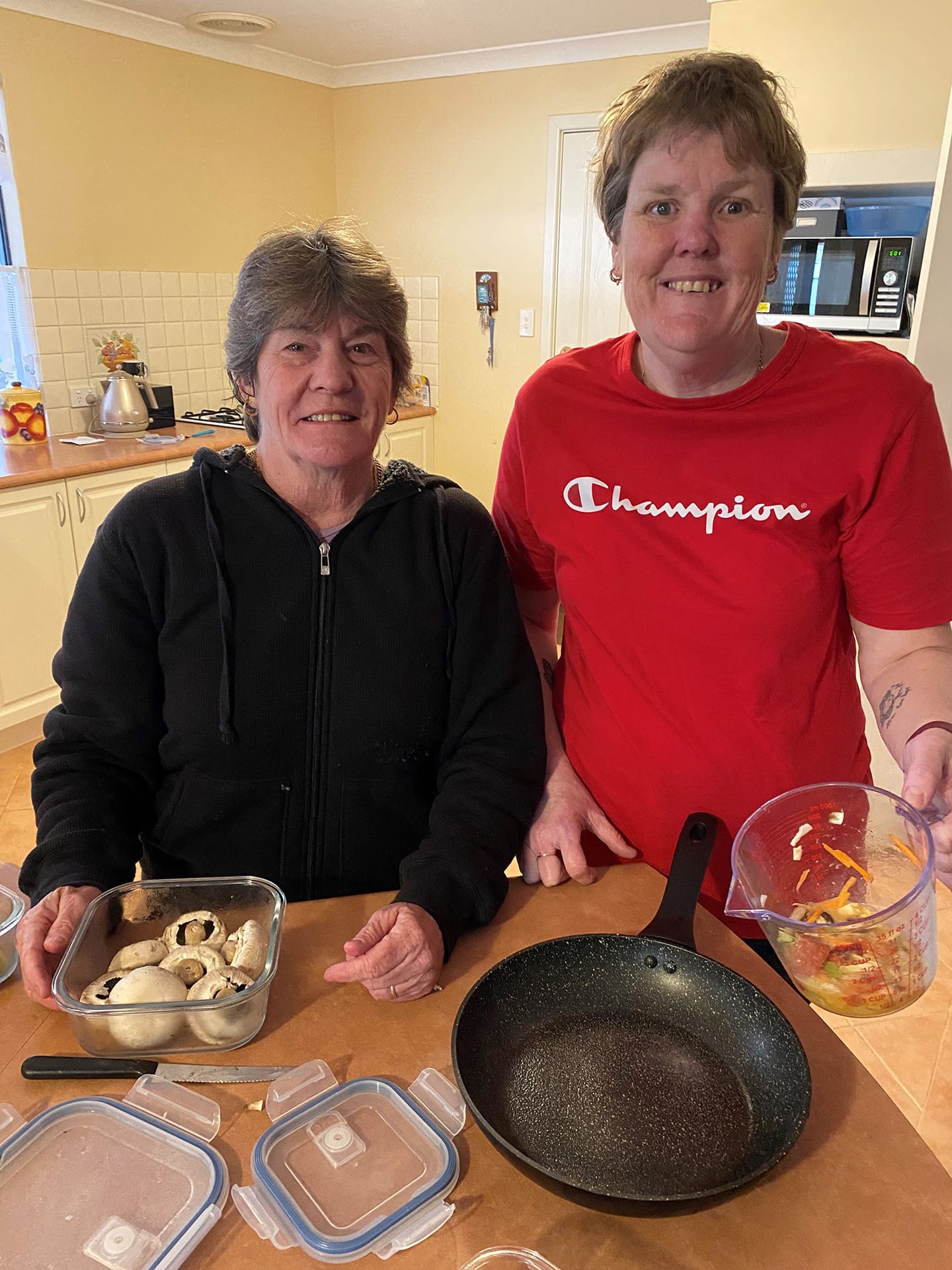Denise Dodson is a National Disability Insurance Scheme (NDIS) participant and Self-Manager. She shares some of the challenges and triumphs she’s experienced taking control of her funding and navigating the world of the NDIS.
A proud Mother of two adult children and Grandmother of one, Denise lives in Perth’s Northern suburbs. She moved to Western Australia a couple of years ago, has since received NDIS funding and began trying to find the right services to support her needs. Denise is taking control of her funding and managing her own plan with support from Personal Assistants WA. We discussed the roll-out of the NDIS and Denise opened up about her experience.
This is your first experience with the NDIS and accessing funding for support in the community. What has this been like for you?
It’s been good getting out into the community to do things now instead of sitting at home or having to rely on family all the time. I also got a new (prosthetic) foot that was funded by the NDIS. I knew it was available before but I couldn’t afford it until I received my funding.
When I first received my funding it was overwhelming. I was handed a list of providers which was 40 pages long – I was supposed to find one amongst the many! I didn’t have a Support Coordinator at that stage, and didn’t know where to start. I contacted the NDIS to ask for some help but I was told they “don’t do that”. I got the list and started ringing providers and reading reviews online. It was difficult to find a good provider. I thought they would provide a competitive service as they’re in business competing for people’s money, but it feels like you just get what you’re given. Hopefully once the NDIS starts running smoothly and more businesses keep popping up the market will become more competitive.
Managing your own NDIS plan comes with some benefits; more choice in what supports you purchase, greater flexibility in what providers you can use and the staff you employ, controlling your own funding and budget and negotiating prices or “shopping around” to find cheaper alternatives. Can you tell us a bit about this?
When I first got quotes from an Occupational Therapist (O.T.) they were so expensive – way more than I was funded for. I self-manage so I can use different providers. It took a while but I was able to shop around and find a cheaper O.T. and she’s been good.
I manage my own budget so I get to choose and track where my money is being spent and what on. I’ve had providers trying to claim money from my funding for services they aren’t even providing and that I never agreed to engage them in – I enquired and asked for a quote and they tried to claim based on that without any service agreement. Managing my own funding means I can keep track of who is charging me for what.
Service providers aren’t used to being held accountable to the person whose funding it is. I’ve had providers making decisions without my approval and I don’t even know the decision was made until I receive an invoice for something. It’s good that they’re starting to be held to account now.
What else have you discovered being a Self-Manager?
The standard and attitude of service providers needs to improve and hopefully will as the market becomes more competitive. One of the major providers I contacted had good reviews online, but I had to follow up with them three times because they kept forgetting to call me back after they said they would. The third time I called back they made an appointment with me and never showed up or contacted me.
The NDIS is meant to improve the situation for handicapped people. They’re making good changes but I still feel I’m treated like a “second-class citizen” – I want to be counted and feel my opinion matters. People still talk over me (to the person I’m with) instead of to me. But it is getting better – the services have come a long way from when I was growing up. Hopefully as the NDIS starts running more smoothly, the standard of services will continue to improve for people with disabilities.
Looking for Self Management Support?
Self Management gives you the choice to match supports to your own goals.
Discover more

